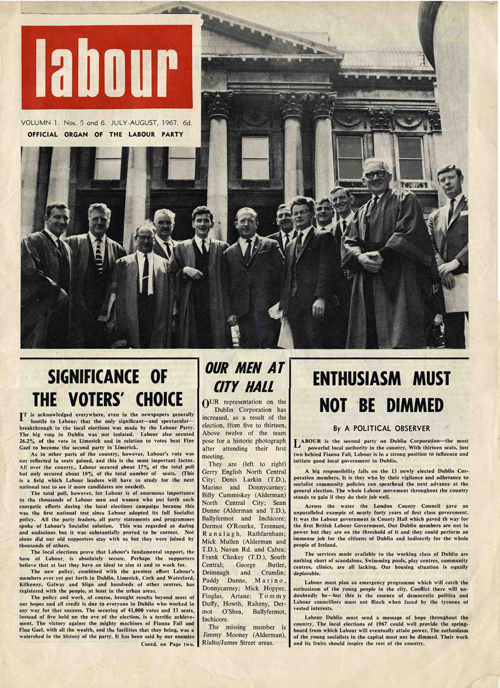Back Showing posts tagged #labour
#OnThisDay, 28th May 1912, the Labour party was founded in Clonmel by James Connolly, James Larkin and William O'Brien.
Labour
Irish Left Archive
New document:
"The Coffee Circle Papers: Postscript - Times Change"
The Coffee Circle Papers were a series of discussion papers in Democratic Left in 1998/99. This postscript was written by Rosheen Callender after their 1999 merger with Labour.
The Coffee Circle Papers: Postscript - Times Change (1999) — Democratic Left, Labour
Irish Left Archive
New document:
"Quinn and De Rossa merge parties to form: New Labour Sellout!"
Voice, newspaper of the Socialist Party, on the merger of Democratic Left with the Labour party in 1999.
https://www.leftarchive.ie/document/7256/
#Ireland #Politics #History #SocialistParty #Voice #DemocraticLeft #Labour
Voice, No. 19 (1999) — Socialist Party
Irish Left Archive
#OnThisDay 28th of May 1912, the Irish Labour party was founded.
Labour
Irish Left Archive
"Labour Takes a Small Step Forward"
The Northern Star on the Northern Ireland local elections, which took place #OnThisDay 19th May 1993.
The Campaign for Labour Representation (CLR) ran 13 candidates, with Mark Langhammer being elected in Newtownabbey.
The Northern Star was produced by Athol Books, publisher of the British & Irish Communist Organisation, which supported the CLR.
The Northern Star, Vol. 7, No. 6 (1993) — Athol Books
Irish Left Archive
#OnThisDay 16th October 1968, a referendum to remove proportional representation in favour of majoritarianism was held in the Republic of Ireland.
The referendum was rejected by 60% of voters.
Below is a poster from the Labour party from the campaign.
#OnThisDay 14th of October 1967:
Labour party leader Brendan Corish delivered his "New Republic" speech, famously opening with “the seventies will be Socialist”.
https://www.leftarchive.ie/calendar/on-this-day/10/14/#event-5538
On This Day, 14th October
Irish Left Archive
New document:
The First Dáil. A leaflet from Labour, circa 2010s.
The First Dáil (2010 c.) — Labour
Irish Left Archive
#OnThisDay 27th June 1998:
Does Ireland Need a “New Labour”?
An address by Dr. Pat Upton, T.D. to the Tom Johnson Summer School, Dunmore East, Co. Waterford.
Does Ireland Need a “New Labour”? (1998) — Labour
Irish Left Archive
#OnThisDay 26th June 1971, the Labour party dissolved the Fintan Lalor branch in Dublin North Central due to membership of the Socialist Labour Alliance.
https://www.leftarchive.ie/calendar/on-this-day/06/26/#event-4513
On This Day, 26th June
Irish Left Archive
Two Irish general elections occurred #OnThisDay, 6th June, in 1977 and 1997.
Here' the Socialist Party of Ireland's (SPI) Advance magazine profiling their candidate Eamonn O'Brien in 1977. The SPI went on to merge with the Democratic Socialist Party in the early 1980s, which ultimately merged with Labour in 1990. (It is not related to the current Socialist Party).
And from 1997, an analysis from Labour's Emmet Stagg in TILT of Labour's losses in that election (the party lost 16 TDs, going from 32 to 17).
https://www.leftarchive.ie/calendar/on-this-day/06/06/
#OTD #Politics #History #Ireland #SocialistPartyOfIreland #Labour #Advance #TILT #GeneralElection
On This Day, 6th June
Irish Left Archive
#OnThisDay 28th May 1912, the Irish Labour Party was founded by James Connolly, James Larkin and William O'Brien as the political arm of the Irish Trades Union Congress (ITUC).
Labour
Irish Left Archive
For an overview of materials from the British left on Ireland, we've gathered documents from several strands – including Labour, Trotskyist groups, CPGB and other communists, Maoists, SPGB and others – in this document collection: https://www.leftarchive.ie/collection/2835/
#BritishLeft #Ireland #Labour #CPGB #SPGB #Communism #Maoism
Document Collection: The British Left on Ireland
Irish Left Archive
Here's an interview with Michael D. Higgins in Gralton, from 1982, in which he is asked about the prospects for the Irish left, his opposition to coalition with Fine Gael (FG), and the role of Labour as a vehicle for the left.
He also expresses opposition to expelling Militant (who were eventually expelled in the late 80s and are now the Socialist Party), and comments on the then recently dissolved Socialist Labour Party (SLP).
Higgins was Minister for Arts, Culture and the Gaeltacht in the 1993 FG, Labour and Democratic Left coalition, and has been President of Ireland since 2011.
#IrishLeftArchive #Gralton #MichaelDHiggins #Labour #FineGael #Militant #SocialistLabourParty
The Labour Party: Northern Policy Statement
Adopted by their annual conference #OnThisDay 26th February 1972.
Northern Policy Statement (1972) — Labour
Irish Left Archive
In June 1984, a visit by Ronald Reagan to Ireland was met with widespread protests, with a march on Shannon airport on his arrival, a large “ring around Reagan” protest in Dublin city centre, and the Women’s Peace Camp in the Phoenix Park.
This article from Labour left expresses disappointment at that party's failure to oppose the visit.
#Ireland #Politics #History #RonaldReagan #Labour #LabourLeft #IrishLeftArchive
In June 1984, a visit by Ronald Reagan to Ireland was met with widespread protests, with a march on Shannon airport on his arrival, a large “ring around Reagan” protest in Dublin city centre, and the Women’s Peace Camp in the Phoenix Park.
This article from Labour left expresses disappointment at that party's failure to oppose the visit.
#Ireland #Politics #History #RonaldReagan #Labour #LabourLeft #IrishLeftArchive
"Bright Prospects for Council of Labour"
From 1967, an article from Labour ('Official Organ of the Labour Party'), on cooperation between the Labour party, Northern Ireland Labour Party and Republican Labour Party.
View Document: Labour, Vol. 1, Nos. 5-6 - Labour
Irish Left Archive
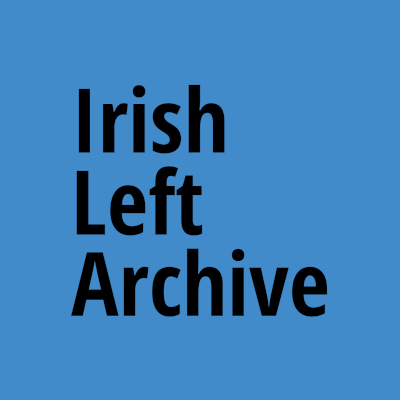

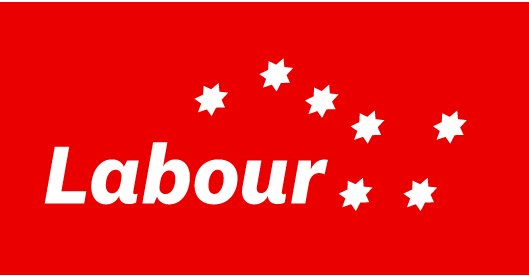
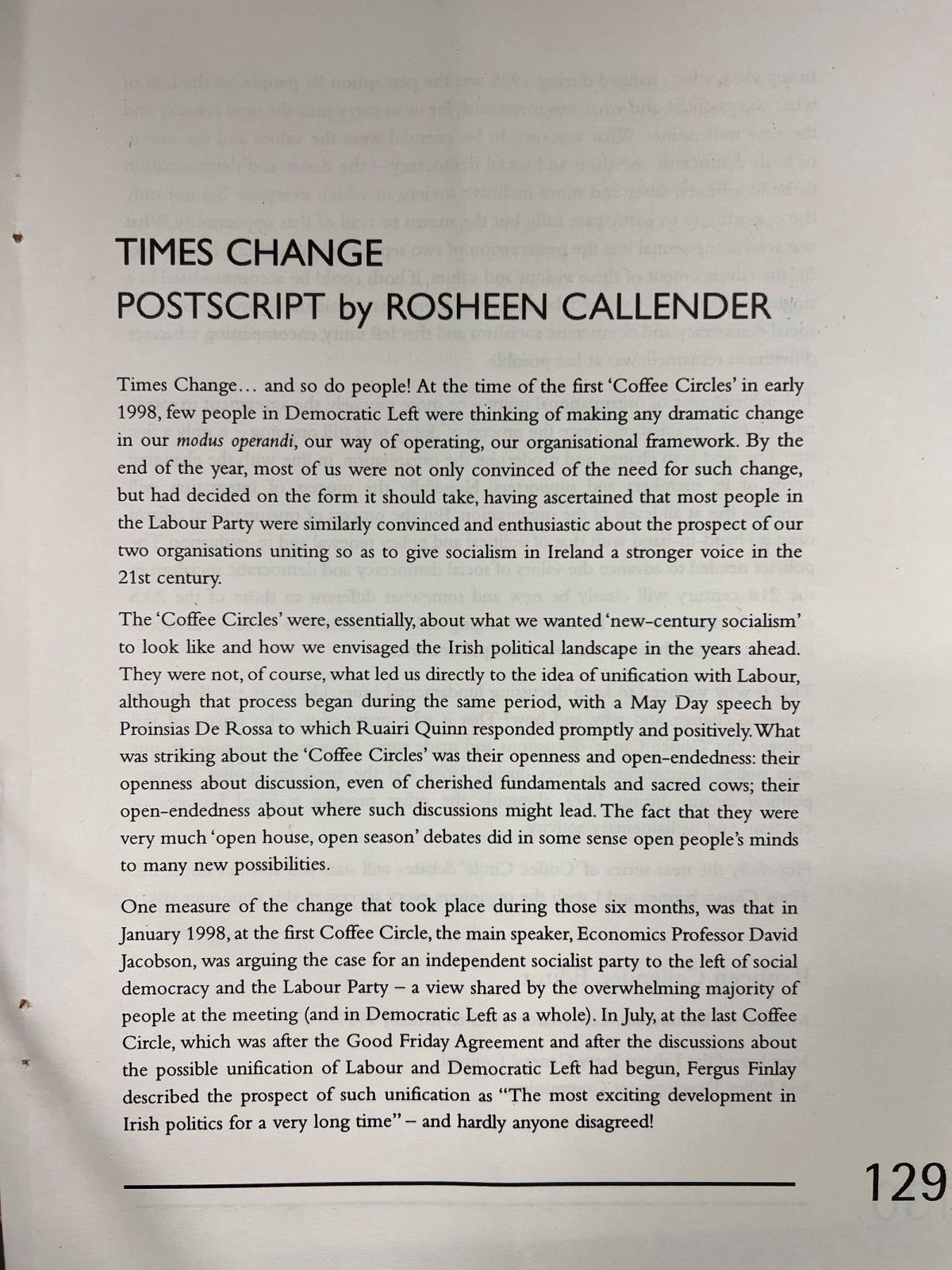
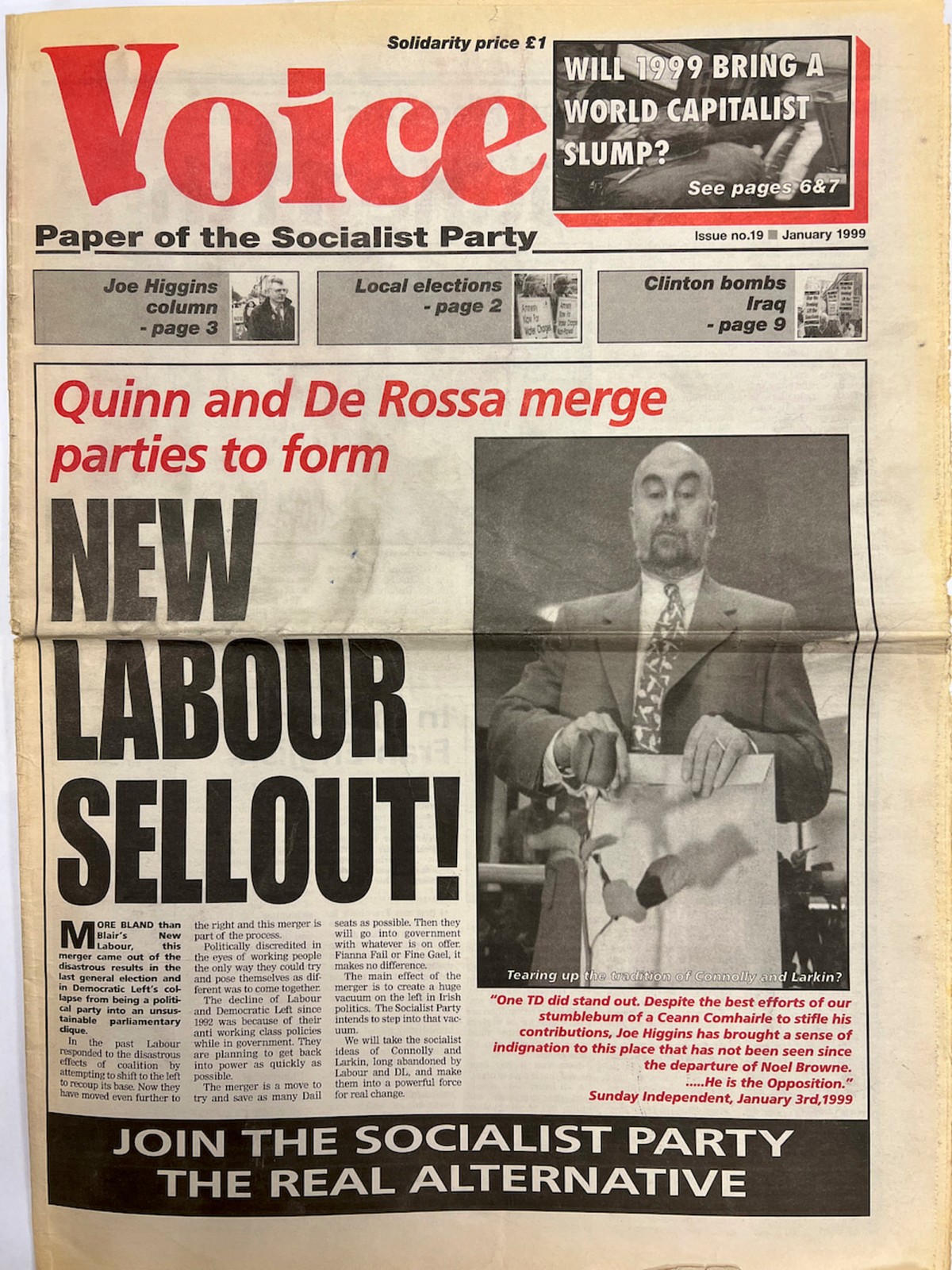
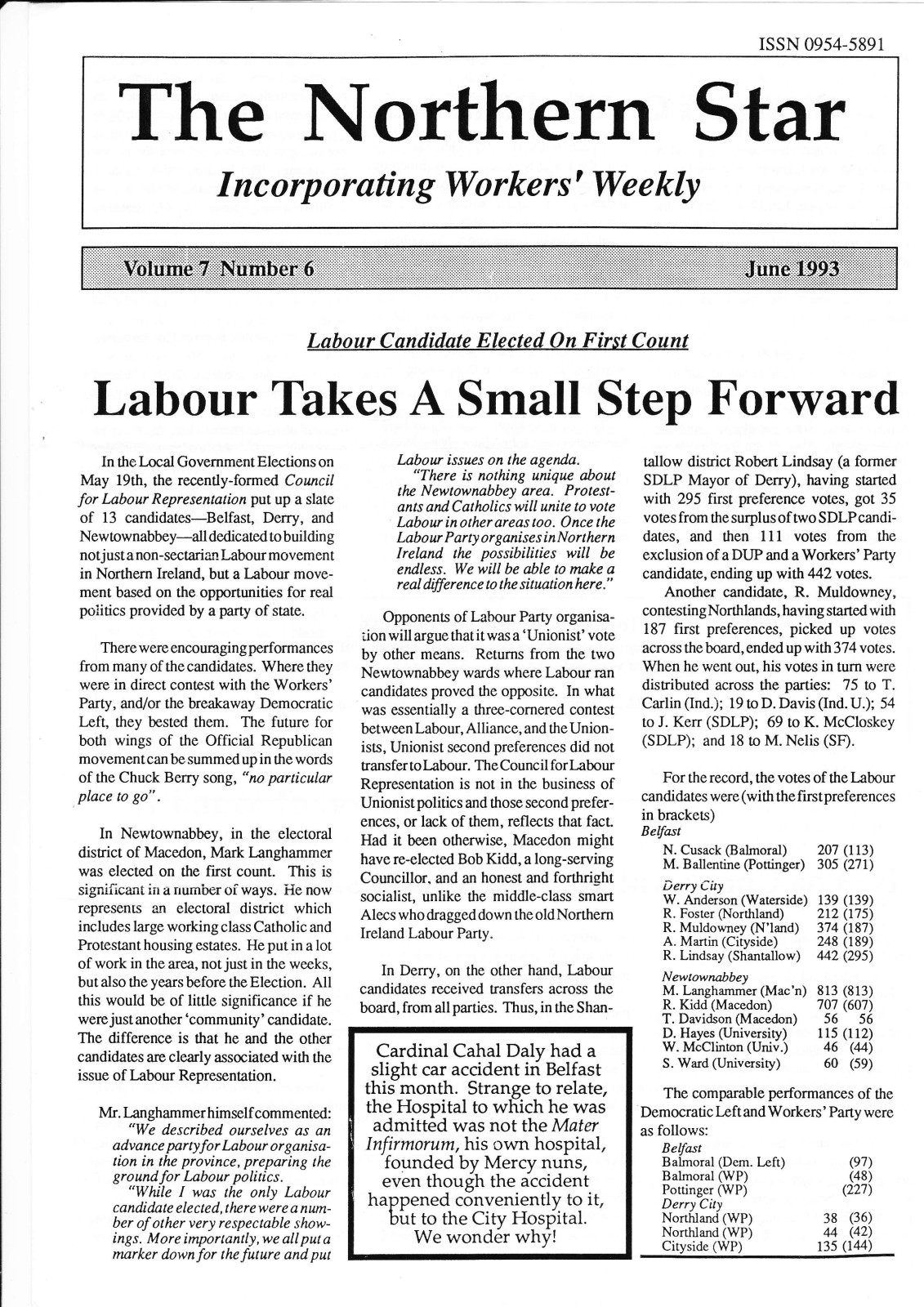
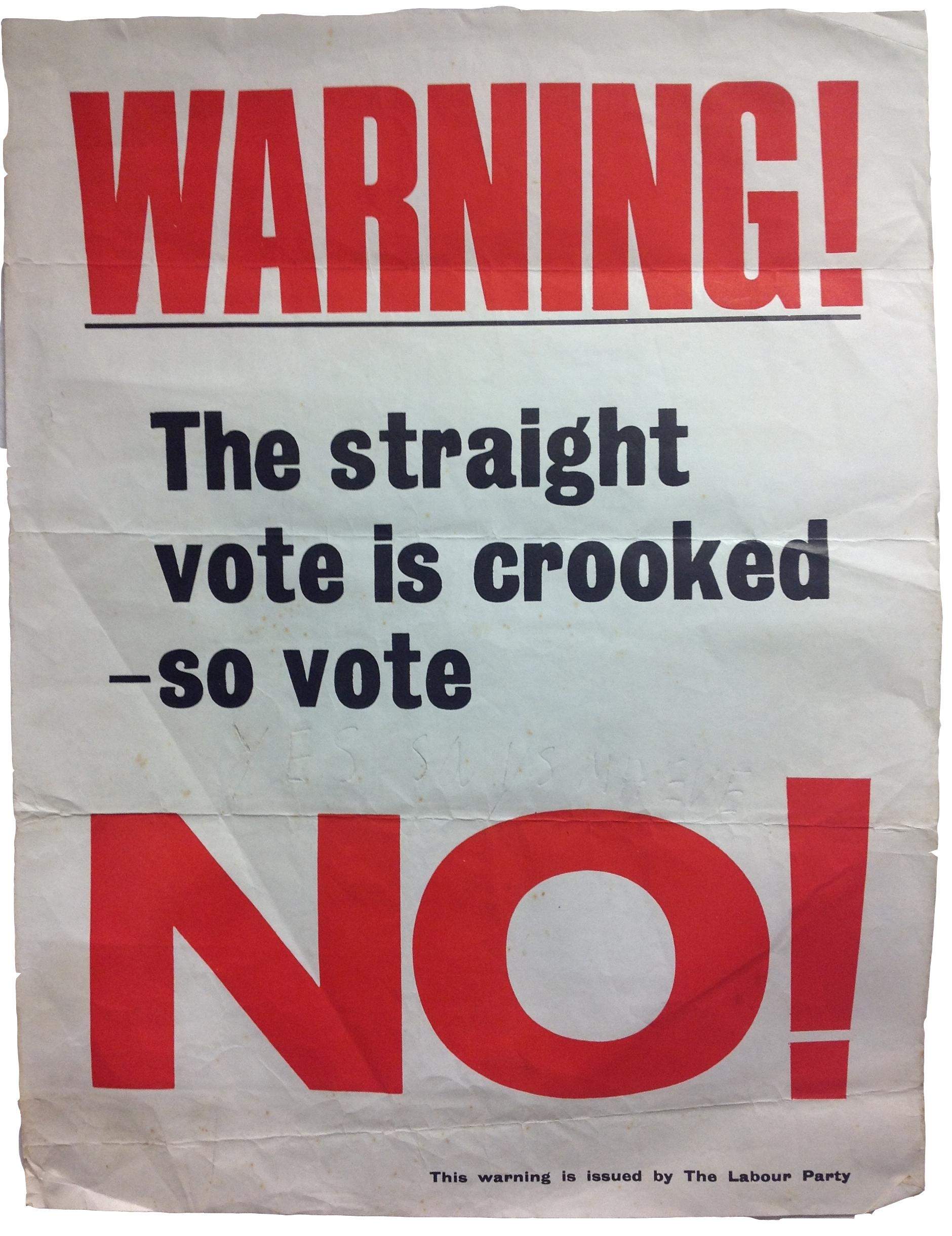
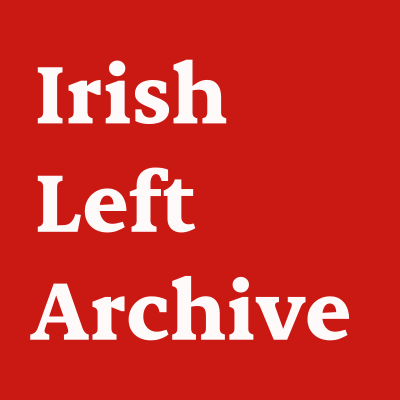
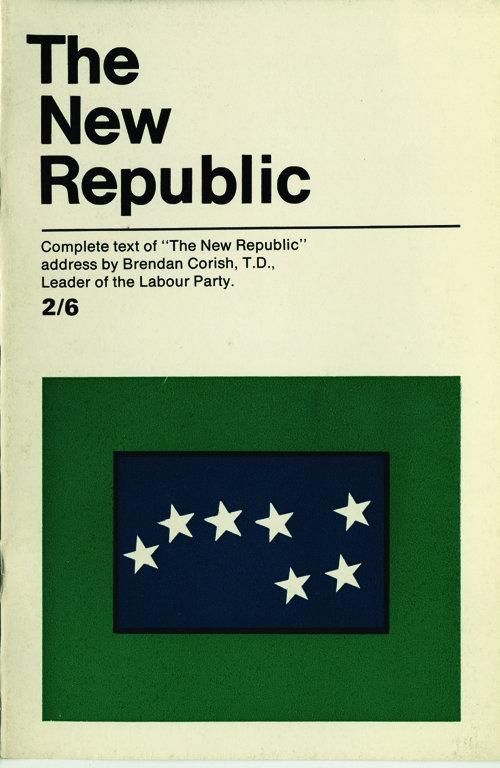
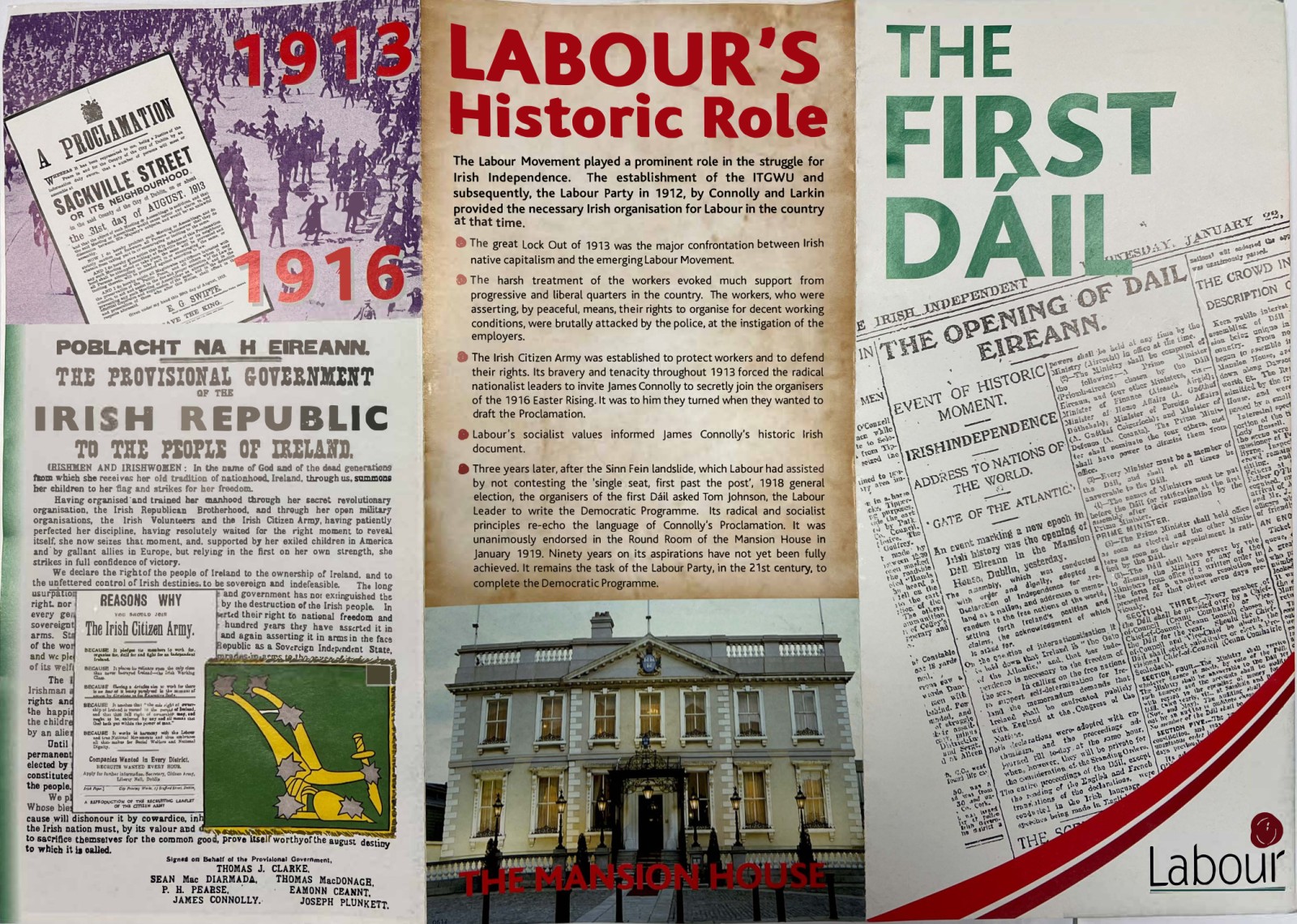
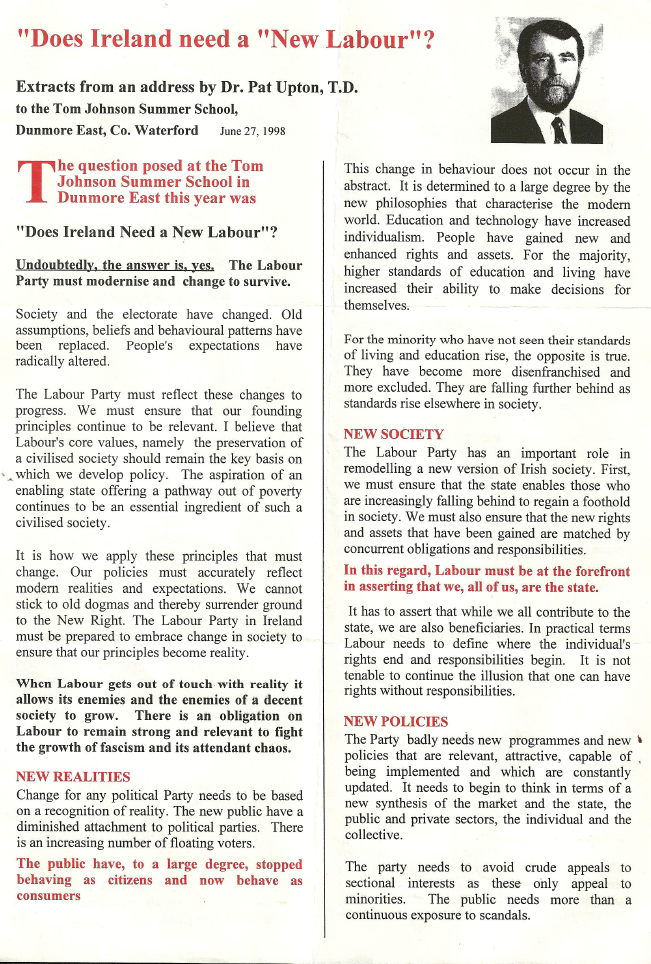
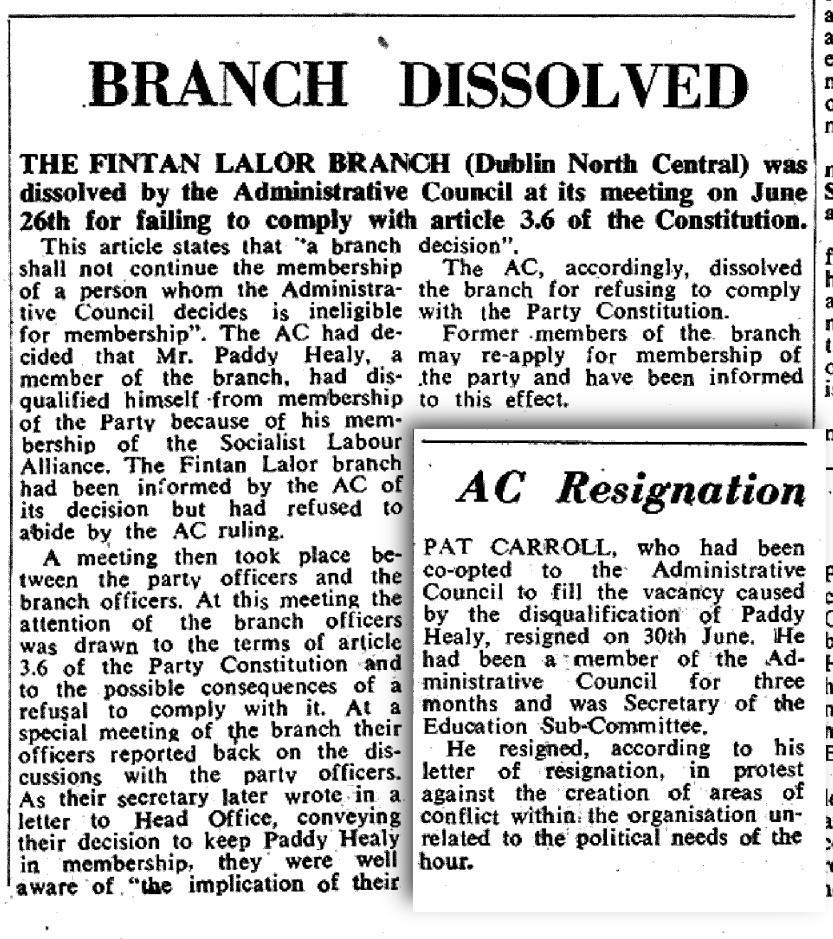
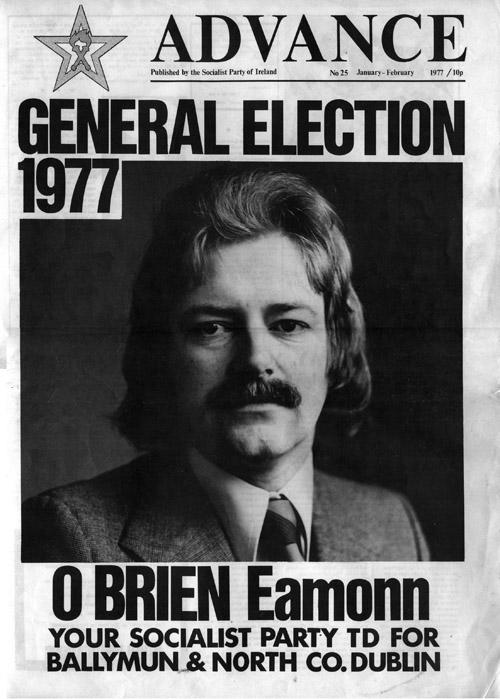
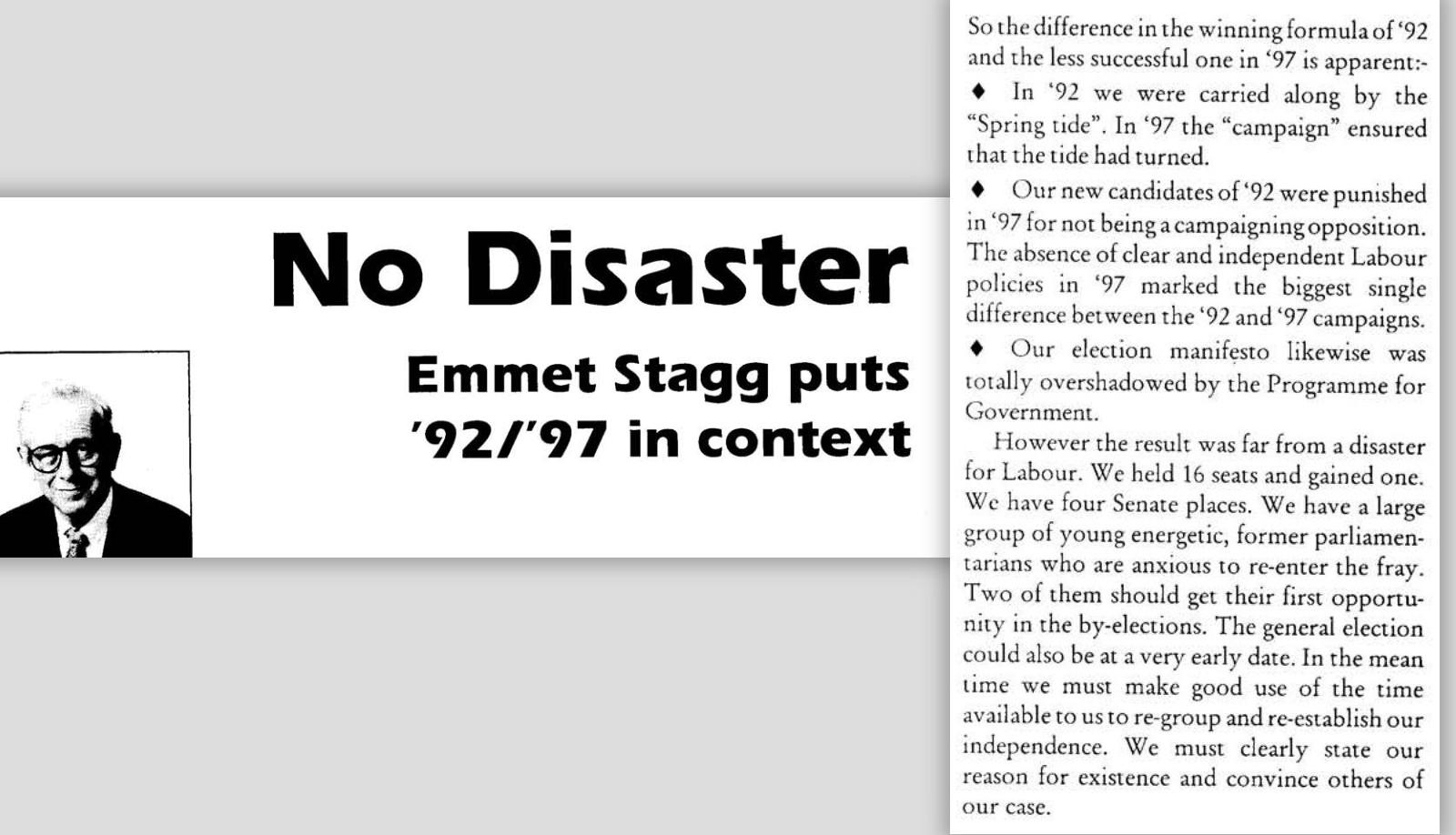
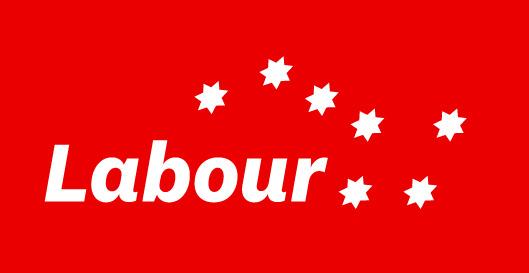
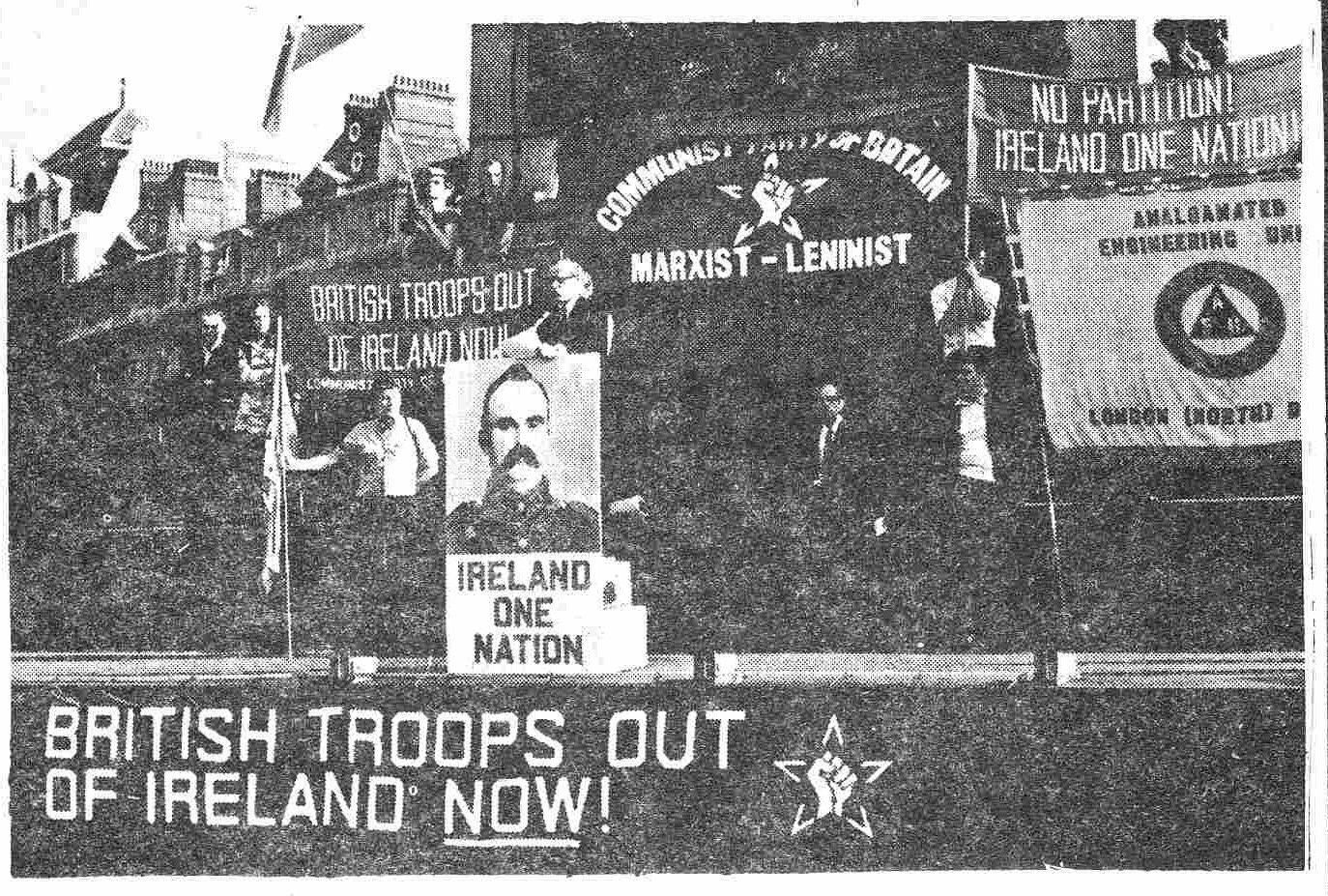
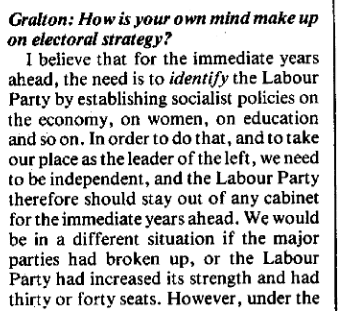
![Scanned text from a magazine, reading: Gralton: Speaking of Britain, there are moves in the British Labour Party to expel the Militant. Are you concerned about the activities of the Irish Militant?
No, I'm not concerned. Many people believe I'm a member or supporter of the Militant, but I'm neither. 1 accept that people have a right to work for different positions within the Labour Party. I don’t believe in the expulsion or proscription of tendencies. I'd want to deal with them by argument. From the things I've read about the British Militant, I don’t agree with the tactics they seem to have used in some constituencies.
People in different countries are asking what form of socialism will be appropriate in the twentieth century and the twenty-first century. We must have the courage to go beyond existing models, I met Trotskyists recently who said you couldn’t have a socialist revolution in Nicaragua because there was no revolutionary socialist party — and I heard the same argument from an official in Russia. Socialism is a philosophy and a theory of action that must be put into effect in different historical circum- ... [continued in next image]](https://posts.leftarchive.ie/attachments/thumbnails/03ed1c2a8f8d0caf6419d53f1fecfb60addc36a3d1c58454a330fbde5dadd21d/gralton1.png)
![[Scanned text, continued from previous image] ...circumstances. We’ve no right to put a limit on the forms of socialism. I'm not a vague ethical socialist, now. We have to win the economy, that’s of crucial importance.But there are other things like taking action on disarmament, on ecology.
Many people will make a contribution to socialist thought after Marx, Lenin and Trotsky. The world didn’t stop on one day in Mexico. I'm not speaking of course about diluting socialism, I'm not talking of some vague form of social democracy. We have to take account of the circumstances, the phenomena in any particular . place. In Ireland we're operating within the European context. We're a small open economy dominated by foreign capital. We're undeveloped within that context rather than in a Third World context.](https://posts.leftarchive.ie/attachments/thumbnails/26dc2bbbd50f4d463cbd8c79e6c137d602427f6d5a5717c39d58f6d5e195c0dc/gralton2.png)
![Scanned text from a magazine, reading:
Gralton: Looking at the track record of the left in the Labour Party, isn't the principled left becoming smaller and smaller?
Not at all. There's been fresh blood coming in, and former members have been coming back. The folding-up of the SLP [Socialist Labour Party] removes one of the obstacles to people coming back: they were people of undoubted principle but their leaving of the Labour Party was a bad tactic. We're now on the brink of a majority position in the Labour Party: with them in, and others, we'd be much more sure.](https://posts.leftarchive.ie/attachments/thumbnails/b728e5f9372752f4345ff6b91e6d4fca709141f3fbecc7ad7213a1afe343f163/gralton3.png)
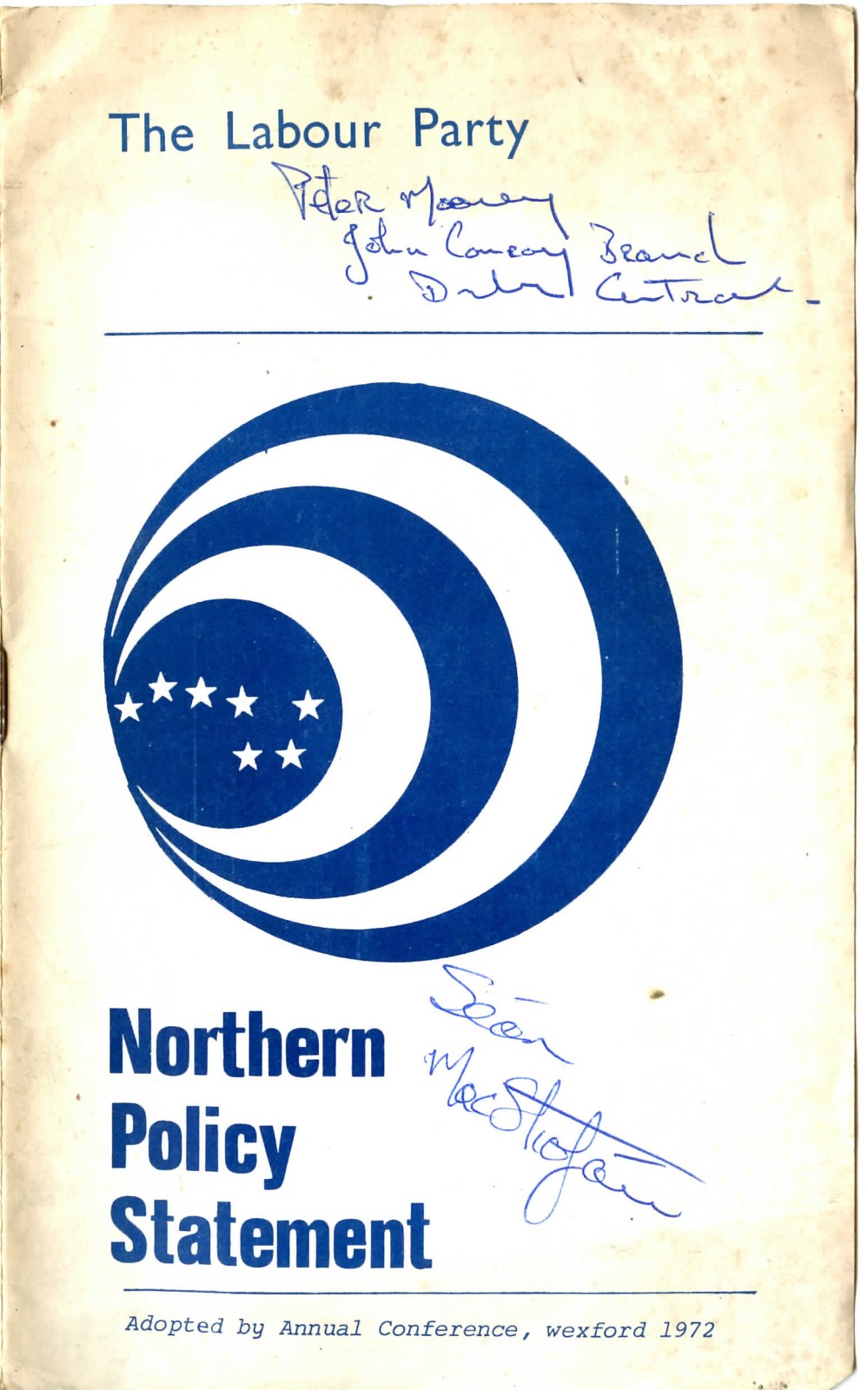
![A scanned magazine article, reading:
Silence is violence
Nearly seven hundred delegates at the Labour Party Conference voted for a composite motion which called for a boycott of functions and engagements held in connection with President Reagan’s Irish visit. The international committee advocated a similar approach. However, it was defeated by the narrowest of margins.
Speakers from what may be termed the party’s ‘centre’ argued against a boycott. Senators O’Mahoney and Harte having condemned torture, mass murder,violations of international law, the attempts to overthrow a legitimate government (one that is supported by the Socialist International) and all criminal activities sponsored by the Reagan Administration, then turned around and said a boycott wouldn’t look good or was contrary to ‘protocol’. They of course were to later absolve their socialist conscience by personally boycotting the joint session but had helped block Labour taking effective action as a party. This position might be characterised as leading from behind. A majority of the score or more parliamentarians who boycotted Reagan’s Oireachtas speech were Labour Party representatives, yet because we did not lead from the front, a course advocated by the Left and one which would have brought attention to our internationalist philosophy, we failed to offer genuine, as opposed to token, solidarity with the oppressed in the Third World.
At Conference the leadership were given a lifeline in the form of a petition to be given to Reagan which replaced the boycott. Dick Spring we are told fulfilled his obligations in this regard although predictably this exercise did not receive any headlines or photographs nor was it meant to. Spring neither led from the front nor behind but rather played second fiddle to the host, Garret FitzGerald.
Given that nearly 50% of Party wanted a complete boycott and an overwhelming majority showed grave concern at Reagan’s policies one would have expected Spring to give public expression of this anger. Instead his contributions to this media event was laughing and joking with Nancy Reagan at the State Banquet while hundreds of party members marched together outside with thousands of others.
Once again the leadership proved incapable of giving expression to the concerns, aspirations and idealism of young people. Another opportunity missed.
[Image shows a number of people marching in Dublin with the foreground banner reading "Silence is violence". It is captioned: Protestors at anti-Reagan demo.]](https://posts.leftarchive.ie/attachments/thumbnails/ba63a53f49ddff34167cd5270867c19f1e6cf725e36f28d986abcf1156c78744/Labour_left--Reagan.jpeg)
![A scanned magazine article, reading:
Silence is violence
Nearly seven hundred delegates at the Labour Party Conference voted for a composite motion which called for a boycott of functions and engagements held in connection with President Reagan’s Irish visit. The international committee advocated a similar approach. However, it was defeated by the narrowest of margins.
Speakers from what may be termed the party’s ‘centre’ argued against a boycott. Senators O’Mahoney and Harte having condemned torture, mass murder,violations of international law, the attempts to overthrow a legitimate government (one that is supported by the Socialist International) and all criminal activities sponsored by the Reagan Administration, then turned around and said a boycott wouldn’t look good or was contrary to ‘protocol’. They of course were to later absolve their socialist conscience by personally boycotting the joint session but had helped block Labour taking effective action as a party. This position might be characterised as leading from behind. A majority of the score or more parliamentarians who boycotted Reagan’s Oireachtas speech were Labour Party representatives, yet because we did not lead from the front, a course advocated by the Left and one which would have brought attention to our internationalist philosophy, we failed to offer genuine, as opposed to token, solidarity with the oppressed in the Third World.
At Conference the leadership were given a lifeline in the form of a petition to be given to Reagan which replaced the boycott. Dick Spring we are told fulfilled his obligations in this regard although predictably this exercise did not receive any headlines or photographs nor was it meant to. Spring neither led from the front nor behind but rather played second fiddle to the host, Garret FitzGerald.
Given that nearly 50% of Party wanted a complete boycott and an overwhelming majority showed grave concern at Reagan’s policies one would have expected Spring to give public expression of this anger. Instead his contributions to this media event was laughing and joking with Nancy Reagan at the State Banquet while hundreds of party members marched together outside with thousands of others.
Once again the leadership proved incapable of giving expression to the concerns, aspirations and idealism of young people. Another opportunity missed.
[Image shows a number of people marching in Dublin with the foreground banner reading "Silence is violence". It is captioned: Protestors at anti-Reagan demo.]](https://posts.leftarchive.ie/attachments/thumbnails/859e23f03ff046cae42e67d2092543fb79d63670bdcce4f00565b4e895167b19/Labour_left--Reagan.png)
